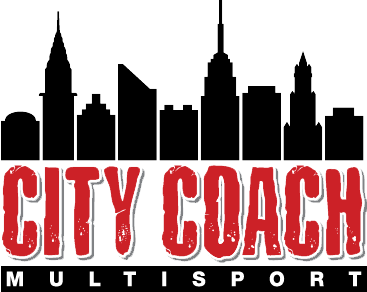Achieving Personal Best: Proposal
Back in 2008, a few photos of me were used in a New York Times "Personal Best" by Gina Kolata. Those two words - personal best - are particularly meaningful to me.
In January, 2012, I wrote my sabbatical proposal to the Faculty Review Committee at The Dalton School. I was fortunate to be honored with the grant to pursue racing and interviewing elite athletes. Over the next few months, I will be posting these interviews. Below are excerpts from the proposal.
I have always enjoyed playing. Ever since I can remember, I loved being outside and being active. I never thought of competition, health benefits, or anything other than the joy I felt playing. As an adult, I have carried with me this concept of play, and honed my skills as a multi-sport athlete. There was no time as a young child or young adult where I showed particular promise. In fact, when I did start to compete, it was often commonplace to find me walking in a running race, having gone out too fast or simply just having given up. I distinctly remember my high school x-country coach asking me, “Sin Quee, when you get to the woods, do you just start walking?” (Yes, would be the correct answer), or being passed by an elderly man (70?) one time who said to me, “Honey, looking like you do, I should not be passing you.”
After many years of playing, training, and stumbling, I realized I was good—and it didn’t happen by chance. I was fitter than in years past, but I attribute my success to the 180 degree shift in my mental state and in how I prepared myself before even getting to the start line. In my last season before pregnancy, I had an undefeated season as a sprint triathlete, and after only one race in the longer distance, qualified to race at the national level for long course (1.2 mile swim, 56 mile bike ride, 13.1 mile run). At the National Championship, I qualified to represent the United States and be a part of the team in Las Vegas in November 2011. Having gotten my citizenship only three years ago, I never thought that by 2010 I would garner All-American status in addition to being on the National Team.
In the school’s mission statement, we ask: "What does a pupil do when given, as he is given by the Dalton Laboratory Plan, responsibility for the performance for such and such work? Instinctively he seeks the best way of achieving it. Then having decided, he proceeds to act upon that decision…
Building on the principles of the Dalton Plan, the school strives to create a climate of respect in which creativity, curiosity, individual risk-taking, and personal excellence are achieved and can flourish.”
My proposal involves writing about "deep practice" -- a concept that we've discussed at Dalton during my tenure there -- and then reflecting on my return to competition. First, I would like to explore how deep practice can and should be used in achieving one’s goal. The consequence of effective deep practice is a perfected skill as well as a mental shift that allows one to achieve her personal best. In our community of athletes and non-athletes, everyone can relate to having to perform. Whether this performance takes place on a stage, a field, or in a classroom, there is a certain mindset and focus that are necessary for helping us achieve our goals. I was lucky enough to question and find answers to how to achieve personal bests through competition.
Additionally, I have been reading The Talent Code, by Daniel Coyle, and it reaffirms a lot of my observations and sheds light on new thought.
"…although talent feels and looks predestined, in fact we have a good deal of control over what skills we develop, and we each have more potential than we might ever presume to guess…Deep practice feels a bit like exploring a dark and unfamiliar room. You start slowly, you bump into furniture, stop, think, and start again. Slowly, and a little painfully, you explore the space over and over, attending to errors, extending your reach into the room a bit farther each time, building a mental map until you can move through it quickly and intuitively…Just take it one step at a time…Deep practice is not simply about struggling; it’s about seeking out a particular struggle, which involves a cycle of distinct actions.
1. Pick a target.
2. Reach for it.
3. Evaluate the gap between the target and the reach.
4. Return to step one.
To get good, it’s helpful to be willing, or even enthusiastic, about being bad. Baby steps are the royal road to skill."
Through athletics, I would like to explore how deep practice and mindful acts help us in achieving our goals. (Note, the goals are not necessarily about winning and beating others, they are about achieving one’s best.)
My goal is not to make Dalton students into athletes, but to share that we can all achieve personal bests and find our talents.
